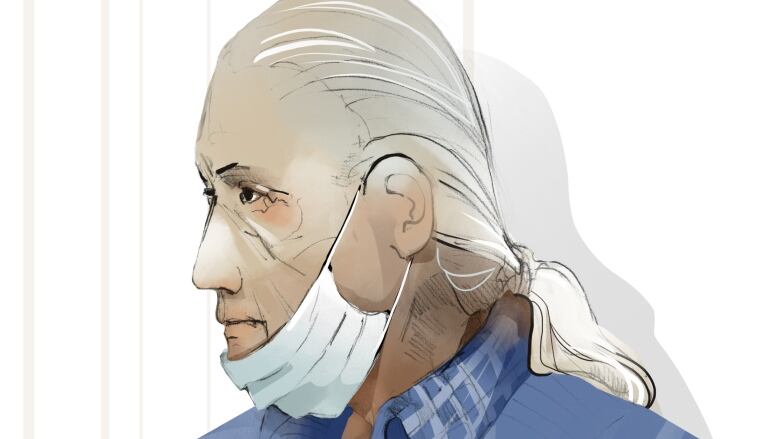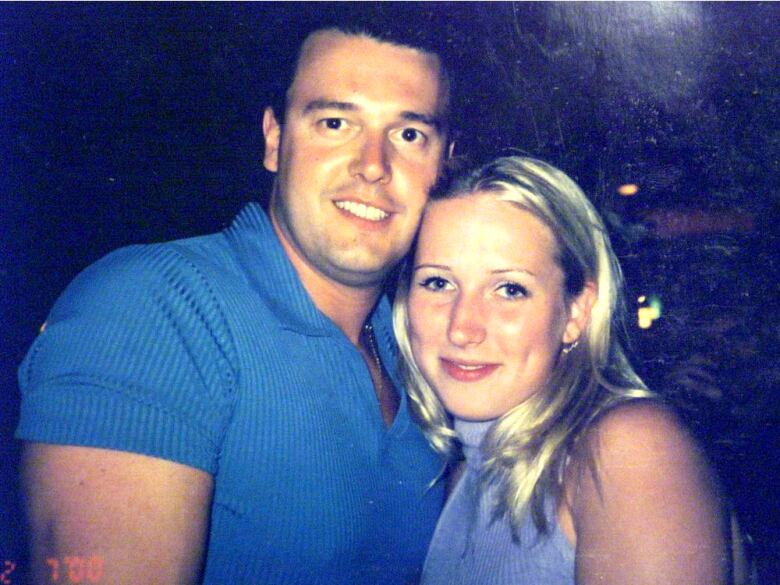Defence in cold case murder trial says accused's one-way ticket out of Calgary helps, not hinders case
Stphane Parent's lawyers to argue victim killed after his flight to Ottawa, not before

When did Adrienne McColl die?
Nearly two decades after the Calgary womanwas killed, that question is key to Stphane Parent's defence.
Parent is on trial for second-degree murder in the death of his former girlfriend, McColl, whose body was found on Feb. 17, 2002, in a ditch alongside a gravel road near Nanton, Alta.
On Monday, after the Crown rested its case last week, defence lawyers Gavin Wolch and Chad Haggerty began calling evidence.
In his opening statement to jurors, Wolch argued McColl was killed after Parent took a one-way flight to Ottawa, not before.
The theory of the defence is that although McColl's footprints of life ended on Valentines Day 2002, she wasn't killed until Feb. 17, two days after Parent flew east, making it impossible he was the one who killed his girlfriend.

By February 2002, McColl and Parent'stwo-year relationship was rocky.
On Feb. 14,McColl was seen driving away from her stepdad's home in the early afternoon.She had a phone chat with a friend around 4:30 p.m.
McColl never showed up for her shift at a downtown bistro and she was never heard from again.
Fingerprint evidence
On Feb. 15, Parentbought aone-way ticket to Ottawa and hopped on a plane with no checked bags.
McColl's body was discovered by a rancher near Nanton on Feb. 17.She had been strangled and her skull was fractured.
The victim was without shoes, a coat and pants. Blue trash bags were found with her body.
On one of those trash bags was Parent's fingerprint, near the drawstring.
As police investigated McColl's death and Parent's disappearance, they discovered a pair of Parent's jeansin the airport parking lot with McColl's blood on the pant leg.
McColl's death became a cold case until police announced Parent's arrest in Gatineau, Que., in February 2018.
Young blondwoman seen running in field
The first defence witness was Bill Longson, who walked along the rural road where McColl's body was discovered in a ditch on Feb. 16, 2002.
Longson testified he did not see the victim's body that day.
Under cross-examination by prosecutor Shane Parker, Longson said he and his wife always walked on the side of the road farthest from the ditch because of a sharp shoulder and steep drop-off.
From that perspective, it would be nearly impossible to see down into the ditch.
Fleeing woman looked 'angry'
Michele Jackson testified next, telling Wolch that she was driving from Lethbridge to Calgary on Feb.17 when she saw a young blondwoman running in a field with a truck"plodding alongbehind her."
At the time, Jackson was about 60 kilometres from Nanton.
Jackson said the woman stopped at one point, turned, pointing at the truck and "looked like she was angry."
But under cross-examination, Jackson agreed with prosecutorMattDalidowiczthat she'd told police in 2002 thewoman "didn't appear desperate or frantic" and did not look up at her vehicle as it drove past.
In 2002, Jackson said in her police statement that she figured that if the woman was in distress she would have run toward the highway, not through a field.












_(720p).jpg)


 OFFICIAL HD MUSIC VIDEO.jpg)
.jpg)



























































































